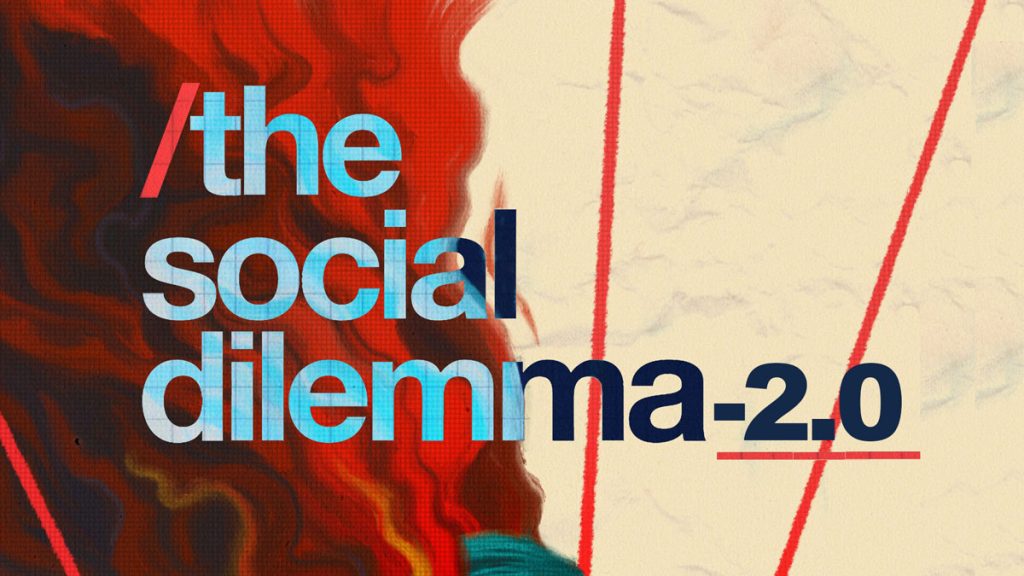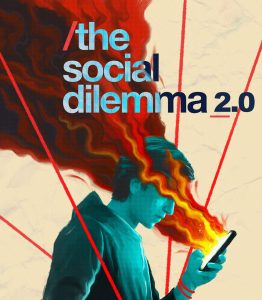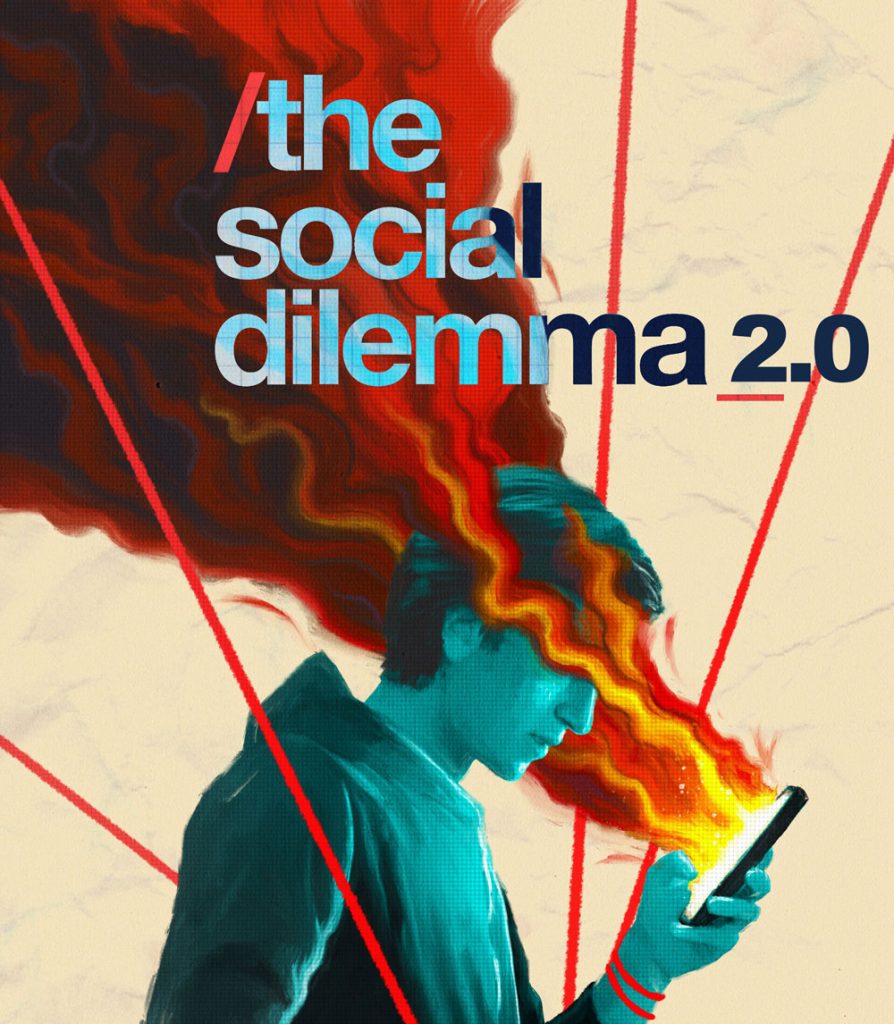Observation
The Social Dilemma 2.0: Follow the Money Edition
Published
4 years agoon

Above: Photo Collage / Lynxotic / Netflix
More than two months ago we published a review and commentary on the Netflix Documentary The Social Dilemma entitled :
The Social Dilemma: Forget the Critics and Watch this Important Netflix Documentary Now
As the title indicates, the original review finds the documentary important and more than worth viewing, even to the extent that it should be considered as something that’s important beyond the entertainment value. And while nothing in that article needs, from our perspective, to be altered and still stands, there is an omission that has grown in importance over the intervening weeks and months.
The omission was not only in the review, and virtually every other review we’ve seen, but also is a glaring one in the film itself. As a matter of fact that omission is so large and so glaring that it warrants a deeper look. Hence the title of this piece: The Social Dilemma 2.0: Follow the Money Edition.
Why “Follow the Money”? Because the film, in its admittedly excellent execution, chose to follow a personal, social and psychological thread in its storytelling arc, and, out of necessity, since the subject matter is so huge and complex, took the comments from the “insider experts” who comprised the on-camera interview segments, and featured mainly those that reinforced the personal, family and social perspective.
Indeed, the film included a fictional family, presumably meant to show how, mainly social media platforms such as facebook, were negatively affecting individuals and society as a whole, through fake news and internet-addictions fostered by the software and algorithm designs.
And this “slant” was carried almost to the point, by the very end of the show, of connecting the software based social media designs and corporate behavior of Facebook and others, to the larger growing malaise in society and the world at large.
Unfortunately, by using the fictional family, trying to show how both young and old are impacted, the scope, depth and severity of the underlying problem was, in essence, minimized.
Read more: Dig deeper into Netflix’s “The Social Dilemma” with these books on the dangers of Social Media

Above: Photo / Netflix
Based on online public comments people seemed to take away that the idea that the film was accusing social media and facebook in particular of, was of causing people to become addicted to social media, for greed and profit, and that this was pretty much the center of the problem.
Google, Amazon and others were only mentioned in passing and the greed and economic problems associated with big tech was touched on and passed over in order to make the case, inadvertently, but nevertheless, that this was an individual, social and personal problem, and one that could be blamed on social media technology.
Arguments and rebuttals arose over the finer points of addictive behavior in general and how social media or internet addiction was just one of many human foibles, and how no hard proof could be compiled to link facebook or any other online platform indisputably to any particular individuals behavior, blah, blah, blah.
All of this became an easy, knee-jerk way to dismiss, out of hand, all the deep and serious problems that were hinted at in the groundbreaking documentary and thereby stop, effectively, any possibility for the film to become a general wake-up call to all who want to isolate and identify the massive, expanding and world destroying effect these monolithic tech behemoths are having on life on this planet.
Which is what the film aspired to and had to potential to be a beginning of.
In our original review we made an attempt to shift some of the focus, away from the more narrow one of looking at individual personal problems and affronts that are being perpetrated, bad as that is, toward a more global and economically based set of concerns.
To that end we cherry picked quotes from the on-camera interviews in the film in order to point out that there was a larger, even more dangerous set of issues at stake that were only hinted at in the film. (We have reprinted a few of them interspersed below)
“Companies like Google and Facebook are some of the wealthiest and most successful of all time. They have relatively few employees. They just have this giant computer that rakes in money, right? Now, what are they being paid for? That’s a really important question.”
-Jaron Lanier, founding father of virtual reality, computer scientist
This quote is and inquiry into the deeper issue; one that is car larger than the question of whatever dangers there may be for individuals who may experience negative symptoms of “internet and social-media addiction”.
Focusing on the personal problems of users of social media in this context is like looking at a planet whose economic system is based on brutal exploitive human slavery and wanting to discuss the food, or living conditions or wardrobe choices offered to the 7 billion slaves.
“This is a new kind of marketplace now. It’s a marketplace that never existed before. And it’s a marketplace that trades exclusively in “human futures”. Just like there are markets that trade in pork belly futures or oil futures. We now have markets that trade in human futures at scale. And those markets have produced the trillions of dollars that have made the internet companies the richest companies in the history of humanity”
-Shoshanna Zuboff PhD., Harvard Business School Professor, emeritus and author of “The Age of Surveillance Capitalism”
Like tobacco companies in the US 50 or more years ago the tech giants need helpless, addicted, impoverished victims to hold up their empire. And, just in the same way, the cost of using the “product” of big tech is pain, suffering and eventually death. And ultimately, just like with Big Tobacco , when the customer base “wakes up” all the empires will collapse, seemingly in a heartbeat.
In the meantime, unfortunately, misdirecting the scope and center of the problem is helping to maintain the empires and poses no threat to them, managing only to confuse and obfuscate the size and severity of the real problem that has emerged.

Above: Photo / Netflix
The real problem with having four companies control a massive percentage of the economy with virtually unlimited profit margins and almost no employees
As the quote above states. These “internet” firms are raking in trillions of dollars in a business model that is based on various forms of exploitation and virtual human trafficking.
This is where we diverge from, and must go far deeper into the problems, than the documentary was able to go.
Firstly, it was left unclear who exactly the firms are that are being singled out in the film. By calling the film “The Social Dilemma” which echos “The Social Network” film based on the origin story of Zuckerberg and Facebook, there’s an implication that Facebook is the “main” problem.
Naturally this choice was logical given that ex-Facebook and ex-Google heavyweights were represented in the interviews. However this is a huge, misleading and erroneous perspective.
Of the huge tech monopolistic-monoliths Amazon, Facebook, Google and Microsoft are the most dangerous. (Apple, in an exception, however, for example, as it designs and builds actual physical products, although it is often unfairly combined with the other 4).
For the sake of simplicity, Microsoft, appearing, deceptively, like harmless-looking old grandfather by comparison, would be a complicated choice to tie into any exposé, therefore was never mentioned. (that we are aware of).
As a matter of fact, Amazon could have had a whole separate yet equally disturbing documentary assigned to its “alleged” crimes and misdemeanors, but ex-Amazon employees would be unlikely to come forward, potentially due to fear of retribution and possible bodily harm.
Thus, one is left with Facebook & Google and then Google becomes partially let off the hook, in the documentary, by focus on “social media”.
The Real Crimes are Economic and based on Inherently Evil Business Models that can not be Removed without causing the Giants Themselves to Collapse
And that’s why they can not be “reformed”. Like a somnambulistic slave population from some kind of dystopian sci-fi fantasy, within a short span of around twenty-five years of internet life, we have seen the emergence of an entirely new and, unfortunately ugly, economic system.
This new system created Jeff Bezos’ obscene, circa 200 billion fortune, as well as the behavioral diseases explored covered extensively in “The Social Dilemma”. The system has also created the sick twisted saga of WeWork and the exploitative business models of companies like Uber and Grub-hub and the like, thereby creating the “gig economy”.
The pandemic that began in 2020 has massively accelerated this highly problematic “new economic order” until Amazon is closing in on being the largest single employer in the USA. (currently #2 with over 750,000).
Why is that not something to applaud? Doesn’t that make them “ok” while Facebook is the real villain?
To the contrary, it can be argued that Amazon’s business model is even more destructive than Facebooks, with it’s vast system of not only exploiting workers but maintaining a serfdom of suppliers and small business “marketplace partners” who are eaten-up and spat-out with a viciousness no historical dictator could ever hope to match.
It is an historical fact that all of the (non-amazon) retail trade is seen by Amazon as an enemy to be eliminated, and that their explicit goal is to destroy the possibility of any economic transaction taking place, in countries where they operate, without Amazon earning a cut – a kind of Amazon-tax on all transactions. “Your margin is my opportunity” as Bezos famously cackled.
This mirrors, in products and computer services, the model of Facebook and Google have in online traffic and ad income, whose goals are to control and take a massive profit from at least 99% of all “digital” advertising revenues. These already represent the majority of all advertising and are growing in total amount and percentage every year.
“In 2019, digital will account for 50.1% of total media ad spending worldwide thanks to strong growth from major digital ad sellers like Google, Facebook, Alibaba and Amazon.” (emphasis mine)
— Source eMarketer
The turning point we have reached, in other words, is one where the sheer size, power and dominance of these firms threatens to overwhelm our entire economy (what’s left of it after the pandemic).
And further, to succeed in controlling it, so totally, as to raise the likelihood that their cancerous behaviors and business models will ultimately cripple and kill the economy itself. Just in time for Global Warming to hit home.
The reason for such pessimism (shared incidentally by those insiders interviewed in “The Social Dilemma”)? Isn’t this all just “good ol’ capitalism”? Isn’t complaining about it just the “whining of losers”?
The problem lies in the self-destructive and totally out of control algorithmic dictatorship systems that these “genius” firms have built.
Take Amazon, again, for example. It’s power and dominance is based on bilking it’s marketplace parters (which have, during the life of the company, contributed the lion’s share of the revenue and an even larger percentage of the profits), and then using those funds to sell it’s own products at a large loss (an illegal activity, rarely prosecuted in the US, known as the loss-leader strategy), in order to harm and, if they succeed, destroy all external competitors (try selling products at less than cost at a massive scale with no source of funds to pay for the disparity).
This neat “fly-wheel”, which is the real one, not the one Bezos has bragged about for decades, is supplemented by enticing Chinese producers to further destroy the domestic market for any US competitors, and, voilà! this wonderful project is actually subsidized by the USPS.
When this monstrosity of a “turbo-charged-Ponzi Scheme” manages to starve its “partners” (millions of small business marketplace sellers) and enemies (everyone else) literally to death, customers will also die (financially).
That is if the government doesn’t intervene first.
The fear of government intervention at Facebook, Google and Amazon is palpable. The lost cases and launched actions are mounting month by month and year by year.
The worst case scenario is only possible if the connection is somehow kept “secret” long enough to deflect blame onto the government, addicted and victimized individuals and / or anyone one else they can attack.
Just like the whistle blower in “The Insider” who was threatened and forced to live in fear until Big Tobacco was finally held to account, we are all hostages of the largest most virulent form of anti-competitive-monopolistic behavior in history. And it is time to wake up.
Forget your internet addiction and all the smoke screens blocking the truth from being seen. The internet, and the communication and economic lifeline that it has become for all of us, is too important to be controlled by 3 or 4 obscenely massive companies.
The longer it takes to dismantle the current malfunctioning system and build a new one, the more we will all suffer and contribute to future suffering, at a scale that is impossible to imagine.
There is a bright spot in all of this! The corner has been turned on people taking notice that there is a problem with the way things are, regarding monopolistic control of the internet realm.
Companies that create build and actually provide and sell physical products, such as Apple and Tesla (and others) are, while far from perfect, not part of the gang that grows almost limitlessly based on exploitation. They do depend on prosperity to survive, since they research and design and innovate cutting edge technologically advanced products (expen$ive), that need to be bought by someone, at the end of the day.
That is why I believe that they, and others like them, will, more and more, become part of the solution, rather than trying to compete directly by being even more exploitative and evil than the others.
Next up: “The Social Dilemma 3.0” will be about business models that need to emerge if we are going to survive and prosper. Thanks for reading and stay tuned.
Subscribe to our newsletter for all the latest updates directly to your inBox.
Find books on Politics, Sustainable Energy, Racial Equality & Justice and many other topics at our sister site: Cherrybooks on Bookshop.org
Enjoy Lynxotic at Apple News on your iPhone, iPad or Mac.
Lynxotic may receive a small commission based on any purchases made by following links from this page

Above: Photo / Netflix



